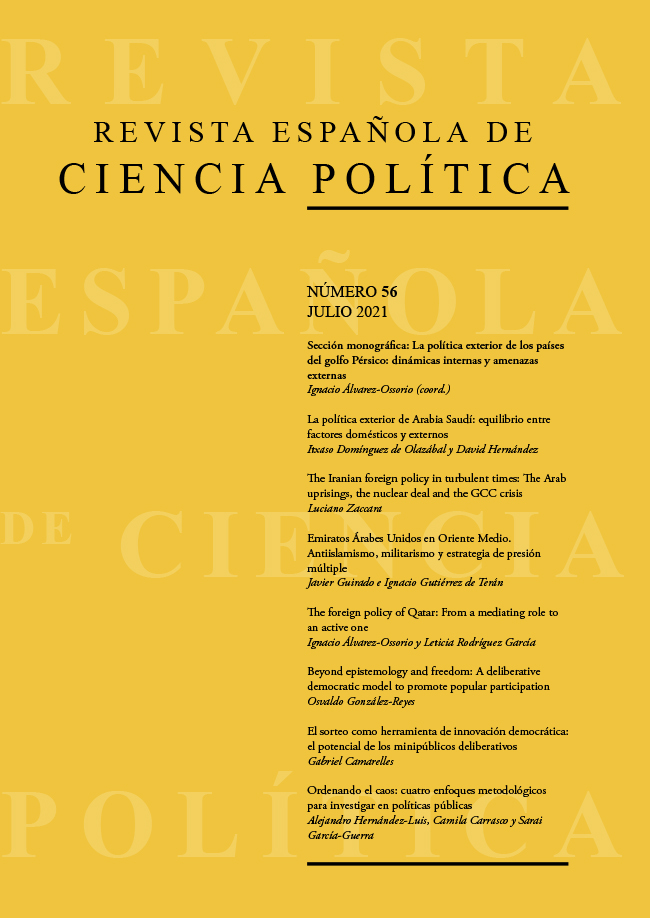The foreign policy of Qatar: From a mediating role to an active one
DOI:
https://doi.org/10.21308/recp.56.04Keywords:
Qatar, Arab Spring, Al Jazeera, Iran, Saudi ArabiaAbstract
The aim of this article is to examine how the process of foreign policy decision-making affects the conduct of states in the international system and how states respond to external threats according to internal factors, notably elite threat perceptions and the capacity of institutions to mobilize power. Despite its small size and population, Qatar has achieved enormous regional projection in the last decades. Our hypothesis is that the Arab Spring forced Qatar and the rest of the monarchies in the Gulf to restructure their foreign policies. The mediator-integrator role that Doha had played till then gave way to a more active, independent role in which the tools of hard power gradually replaced those of previous soft power. These changes aggravated tensions with Saudi Arabia and the United Arab Emirates which, in 2017, decided to impose a blockade on Qatar.
Downloads
Published
How to Cite
Issue
Section
License
Copyright (c) 2021 Ignacio Álvarez-Ossorio, Leticia Rodríguez-García

This work is licensed under a Creative Commons Attribution-NonCommercial-NoDerivatives 4.0 International License.






